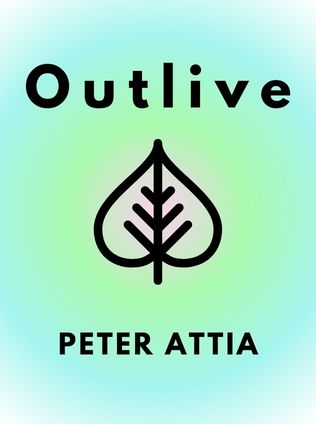
Outlive
The Science and Art of Longevity
By Peter Attia
Published 03/2023
About the Author
Peter Attia, MD, is a renowned physician specializing in the science of longevity. His extensive background includes training at Johns Hopkins Hospital, where he focused on general surgery, and further experience at the National Cancer Institute as a Surgical Oncology Fellow. Dr. Attia is well-regarded for his approach to medicine, which emphasizes preventative care and the optimization of healthspan, not just lifespan. He is also the founder of Attia Medical, a practice dedicated to applying the latest research in longevity science to patient care. His book, Outlive: The Science and Art of Longevity, is a culmination of his years of research and clinical experience, aiming to help people live longer and healthier lives.
Main Idea
In Outlive: The Science and Art of Longevity, Peter Attia, MD, challenges the traditional approach to medicine, which he refers to as Medicine 2.0. This approach focuses on treating illnesses once they have already developed. Instead, he advocates for a Medicine 3.0 approach, which emphasizes early intervention and prevention of chronic diseases before they reach critical stages. His goal is to enhance both lifespan (how long a person lives) and healthspan (the number of years a person can live disease-free). Attia's book delves into the "Four Horsemen" of chronic diseases that affect longevity: diabetes, cardiovascular disease, cancer, and neurodegenerative diseases. He provides actionable strategies across five key areas: exercise, nutrition, sleep, emotional health, and the use of exogenous molecules, aiming to improve overall health and longevity.
Table of Contents
- Introduction
- Medicine 2.0 vs. Medicine 3.0
- The Four Horsemen
- Exercise: The Most Powerful Longevity Drug
- Nutritional Biochemistry: The Science of Eating Right
- The Importance of Sleep
- Emotional Health: The Foundation of Well-being
- Exogenous Molecules: Tools for Longevity
- Conclusion
Medicine 2.0 vs. Medicine 3.0
Attia begins by explaining the limitations of Medicine 2.0, which primarily focuses on treating diseases after they have manifested. He provides the example of diabetes, where traditional medicine often waits until a patient's A1C levels reach a critical point before intervening. In contrast, Medicine 3.0 aims to identify and address health issues much earlier, potentially preventing the onset of diseases altogether.
He illustrates this with a discussion on blood sugar levels, suggesting that attention should be paid long before they reach diabetic thresholds. This proactive approach can significantly improve both lifespan and healthspan, giving people the opportunity to live healthier lives for longer periods.
The Four Horsemen
The "Four Horsemen" refer to the four major chronic diseases that significantly impact longevity: diabetes, cardiovascular disease, cancer, and neurodegenerative diseases like Alzheimer's. Attia delves into each of these in detail:
Diabetes
Attia highlights the importance of addressing insulin resistance early on. He references studies on metabolic syndrome, which includes characteristics such as high blood pressure, high triglycerides, low HDL cholesterol, central fat distribution, and elevated fasting blood sugar. By managing these factors early, the progression to diabetes can be prevented, thereby reducing the risk of other related diseases.
Sign up for FREE and get access to 1,400+ books summaries.
You May Also Like
The Subtle Art of Not Giving a F*ck
A Counterintuitive Approach to Living a Good Life
By Mark MansonRich Dad Poor Dad
What the Rich Teach Their Kids About Money - That the Poor and Middle Class Do Not!
By Robert T. KiyosakiHow To Win Friends and Influence People
The All-Time Classic Manual Of People Skills
By Dale Carnegie



















